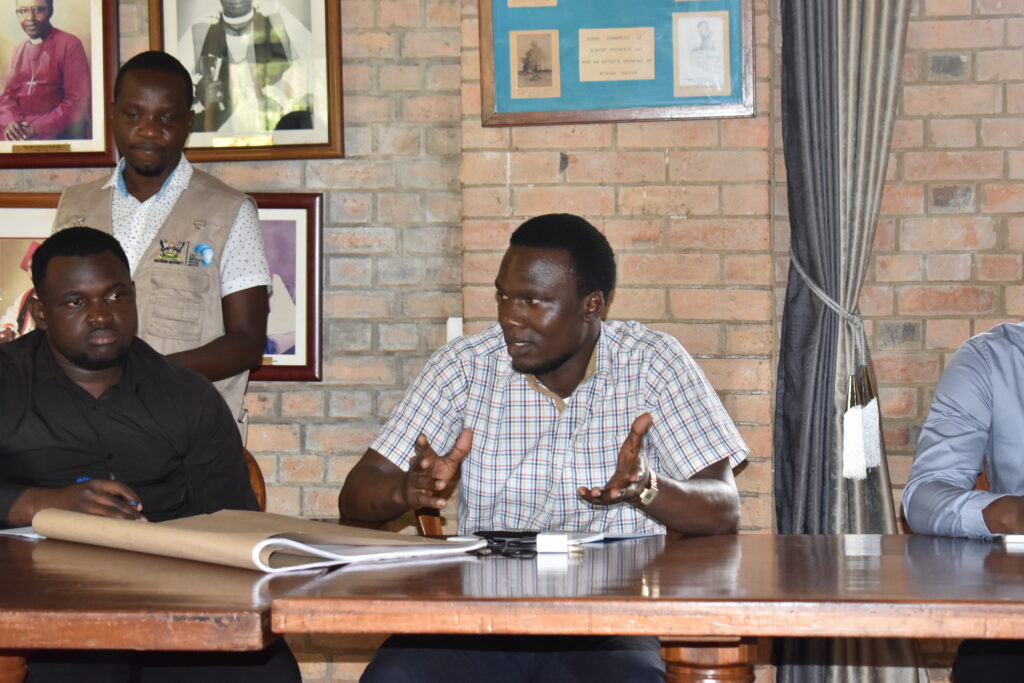By Emmanuel Adigesi
On June 19, 2024, a significant training session on tuberculosis (TB) took place at Uganda Christian University (UCU) in Principles Hall. This event, orchestrated by Dr. Brian Wamala on behalf of the Ministry of Health, USAID Local Partner Health Services TB Activity (LPHS), and the Infectious Diseases Institute (IDI), marked a crucial step in raising TB awareness and prevention within the university community.
The training brought together a diverse group of participants, including custodians, assistant residential staff, personnel from Allan Galpin Health Centre, members of the UCU Fitness Club, and a representative from the 26th Guild Government. These individuals were carefully selected to spearhead TB awareness and mobilization efforts among students and the broader UCU community. This initiative is part of a larger campaign, with UCU being the first university to be selected, aiming to prepare for a TB screening drive scheduled from June 30 to July 4.

Dr. Wamala delivered an in-depth session covering various aspects of TB, including:
- Causes and Risk Factors: He explained that TB is caused by the bacterium Mycobacterium tuberculosis, highlighting the higher prevalence among men and the significant number of undiagnosed and unreported cases.
- Symptoms and Severity: Symptoms such as persistent cough lasting over two weeks, unexplained weight loss, and prolonged fever were discussed. For children, unusual excessive sweating was noted as a key indicator.
- Misconceptions and Self-Medication: Dr. Wamala emphasized the dangers of self-medication and the importance of seeking professional medical advice if a cough persists for more than two weeks.
- Impact on the Body: He educated the attendees that TB can affect almost every part of the body, except for the hair, which was new information to many participants.
Dr. Wamala highlighted alarming statistics, that annually, 40% of new and relapse TB cases remain undiagnosed and unreported. He pointed out that only 16% of symptomatic cases receive appropriate TB investigations. The treatment success rates in Uganda fall below national and global targets due to high rates of patient dropout and deaths, which contribute to the growing challenge of drug-resistant TB.
Preventive strategies discussed included:
- Ensuring open and well-ventilated environments
- TB preventive therapy
- Early diagnosis and treatment
- Promoting community awareness about the prevalence and seriousness of TB
Dr. Wamala stressed the importance of community involvement in TB awareness, urging the trained members to actively encourage their peers to undergo TB screening and to work collaboratively to reach a wider audience within the UCU community.
The training concluded with an interactive question-and-answer session, where Dr. Wamala addressed various concerns from the attendees, reinforcing their understanding and commitment to the cause.
As UCU sets the precedent for other universities, the selected members have a pivotal role in mobilizing and educating the student body and the broader community about TB. Their efforts are crucial in ensuring that the upcoming TB screening drive is successful and that TB awareness is significantly heightened.
This training is a vital component of a broader initiative to combat TB in Uganda, aiming to reduce the prevalence and impact of this disease through education, early detection, and community involvement.


